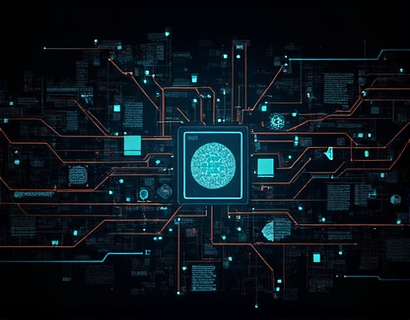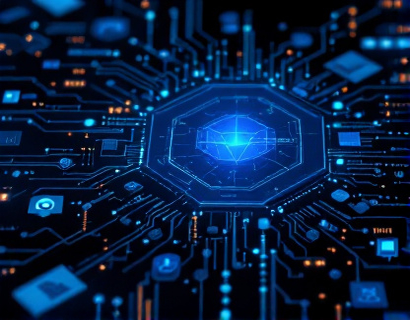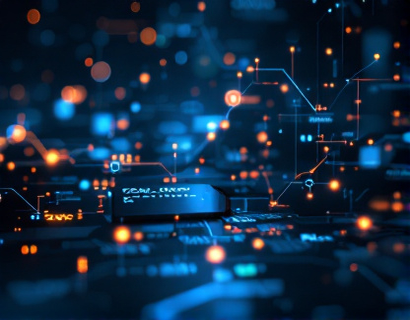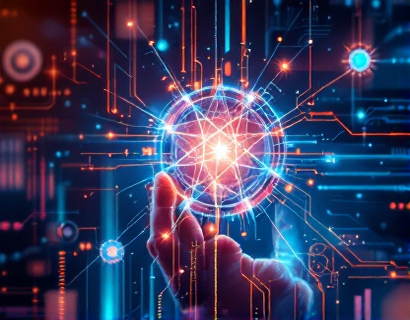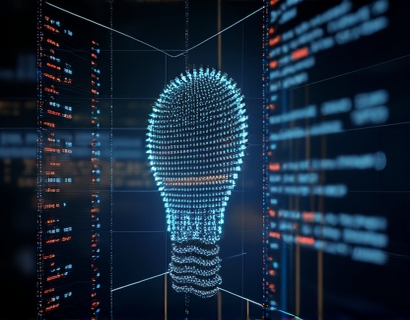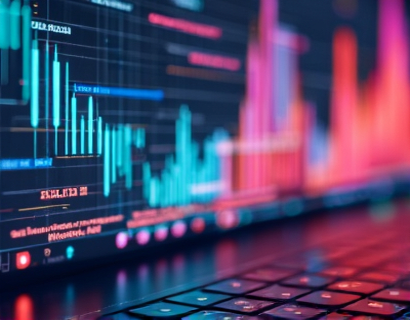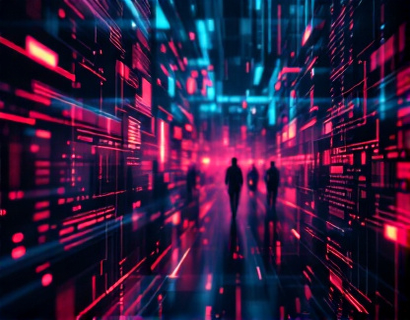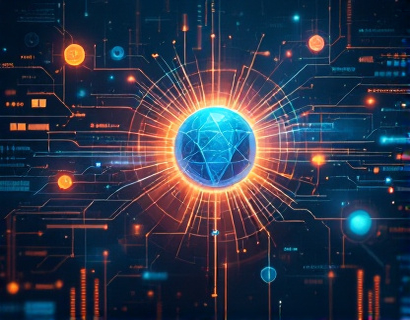Revolutionizing Productivity: The Synergy of AI and Cryptocurrency in the Digital Age
The integration of artificial intelligence (AI) and cryptocurrency is ushering in a new era of productivity and innovation. This fusion of technologies is not just a trend but a transformative force that is redefining how we approach workflows, daily tasks, and digital interactions. For tech innovators and early adopters, understanding this synergy is crucial to staying ahead in the rapidly evolving digital landscape.
The convergence of AI and cryptocurrency brings together two of the most significant technological advancements of our time. AI, with its ability to process vast amounts of data, learn from patterns, and make intelligent decisions, is enhancing the capabilities of cryptocurrency in ways previously unimaginable. Cryptocurrency, on the other hand, offers a decentralized, secure, and transparent medium for transactions, which AI can optimize and automate.
Enhancing Transaction Efficiency
One of the most immediate impacts of AI on cryptocurrency is the improvement of transaction efficiency. Traditional cryptocurrency transactions can be slow and costly, especially during peak times when the network is congested. AI algorithms can predict and manage network traffic, optimizing transaction times and reducing fees. By analyzing patterns and adjusting parameters in real-time, AI can ensure that transactions are processed swiftly and securely, enhancing the overall user experience.
Smart contracts, a key feature of blockchain technology, benefit greatly from AI integration. Smart contracts are self-executing contracts with the terms of the agreement directly written into code. AI can enhance these contracts by adding layers of intelligence, such as predictive analytics and automated dispute resolution. This not only speeds up the execution process but also minimizes the risk of errors and fraud.
Streamlining Identity Verification
Identity verification is a critical aspect of cryptocurrency transactions, ensuring that users are who they claim to be. AI-driven solutions can significantly streamline this process. Biometric data, such as facial recognition and voice patterns, can be used in conjunction with blockchain to create secure and seamless identity verification systems. This reduces the need for cumbersome KYC (Know Your Customer) processes and enhances user privacy and security.
AI can also detect and prevent fraudulent activities by analyzing transaction patterns and user behavior. Machine learning models can identify anomalies and flag suspicious activities in real-time, providing a robust defense against cyber threats. This not only protects users but also builds trust in the cryptocurrency ecosystem.
Optimizing Portfolio Management
For investors, AI and cryptocurrency combine to create powerful tools for portfolio management. AI algorithms can analyze vast amounts of market data, including historical prices, news sentiment, and economic indicators, to make informed investment decisions. This level of analysis is beyond human capability, allowing investors to capitalize on opportunities that might otherwise be missed.
Robo-advisors, powered by AI, can manage cryptocurrency portfolios autonomously, adjusting asset allocations based on real-time market conditions. These systems can also provide personalized recommendations, taking into account an individual's risk tolerance and investment goals. This democratizes access to professional-level investment strategies, making it possible for a broader range of users to participate in the crypto market.
Enhancing Decentralized Applications (DApps)
Decentralized applications (DApps) are a cornerstone of the blockchain ecosystem, offering decentralized alternatives to traditional web applications. AI can significantly enhance the functionality and user experience of DApps. For instance, AI-driven chatbots can provide 24/7 customer support, answering queries and guiding users through complex processes. This not only improves user satisfaction but also reduces the workload on human support teams.
AI can also optimize the performance of DApps by predicting and managing resource allocation. By analyzing usage patterns and user behavior, AI can dynamically adjust computational resources to ensure smooth and efficient operation. This is particularly important for DApps that handle high volumes of transactions or complex computations.
Facilitating Decentralized Finance (DeFi)
Decentralized finance (DeFi) is revolutionizing the financial industry by providing decentralized alternatives to traditional banking services. AI plays a crucial role in enhancing the capabilities of DeFi platforms. For example, AI can improve credit scoring models by analyzing a wider range of data points, including blockchain-based transaction history and social media activity. This allows for more accurate and inclusive lending decisions.
AI-driven risk management tools can also assess and mitigate risks in real-time, ensuring that DeFi protocols operate smoothly and securely. By continuously monitoring market conditions and user behavior, AI can identify potential risks and implement preventive measures, reducing the likelihood of losses.
Boosting Productivity in Development and Maintenance
The development and maintenance of blockchain and cryptocurrency projects are resource-intensive tasks. AI can automate many of these processes, significantly boosting productivity. For instance, AI-powered code analysis tools can identify bugs and security vulnerabilities, streamlining the development cycle. This not only speeds up the release of new features but also ensures higher code quality and security.
AI can also assist in the maintenance of blockchain networks by predicting and preventing issues before they occur. By analyzing network data and performance metrics, AI can proactively address potential bottlenecks and optimize network efficiency. This ensures that applications run smoothly and reliably, enhancing the overall user experience.
Challenges and Considerations
While the integration of AI and cryptocurrency offers numerous benefits, it also presents challenges that must be addressed. One of the primary concerns is the regulatory landscape. As both AI and cryptocurrency are still evolving, regulatory frameworks are often unclear or inconsistent. Developers and users must stay informed about local and international regulations to ensure compliance and avoid legal issues.
Another challenge is the technical complexity involved in integrating AI with blockchain technologies. Developing robust and secure systems requires expertise in both domains, which can be a barrier for some projects. However, as the ecosystem matures, more tools and frameworks will become available, making integration more accessible.
Future Prospects
The future of AI and cryptocurrency is bright, with numerous exciting developments on the horizon. One area of focus is the integration of AI with quantum computing, which could further enhance the processing power and security of blockchain networks. Quantum AI could solve complex problems that are currently infeasible, opening up new possibilities for optimization and innovation.
Another promising direction is the development of AI-driven virtual assistants that can navigate and interact with decentralized applications seamlessly. These assistants could simplify the user experience, making it easier for non-technical users to engage with the crypto ecosystem. Additionally, the rise of AI-powered marketplaces could facilitate more efficient and transparent trading of digital assets.
As the technology continues to evolve, the synergy between AI and cryptocurrency will likely lead to new business models and use cases. The potential for innovation is vast, and those who embrace this fusion will be well-positioned to lead the next wave of digital transformation.











